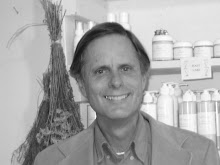Whereas, our ability to utilize herbal medicines has been carried on for generations and the knowledge to use plants for healing has been passed on successfully from our ancestors so we may pass it on to our children.
Whereas, our ancestors through the millennia formed a relationship with plants for the purposes of nurturing and healing our families and communities which has insured our survival throughout the world.
Whereas, the development of distinct traditions of herbal medicine practices throughout the world has resulted in the most widespread medical system accessible to everyone regardless of culture, class, or economic status.
Whereas, thousands of plant medicines have been developed and utilized successfully worldwide for the benefit of community health and those medicines are a reflection of sharing of cultural knowledge and practices about our ecosystems and human health.
Whereas, the utilization of plants for healing is a basic right for everyone and is a demonstration of our many cultures relationships with the air, soil, water, and seeds, as well as a reflection of agricultural practices and spiritual practices.
Whereas, the connection of plants and people as native to a specific area makes them vitally interdependent for community health and essential to protect for future generations.
Whereas, the continuation of our connection to the land for securing plant medicines is essential for ecosystem health, biodiversity, communal, familial, individual, and spiritual wellbeing.
Whereas, the practice of herbal medicine embodies the caring for the land, water, seeds, and native ecosystem while forming an inseparable connection to our Mother Earth and each other.
Whereas, the caring for the Earth and the plant world is an important part of our traditions and security for the future.
Whereas, wild harvesting and cultivating herbal medicines are two essential aspects of community health.
Whereas, the overharvesting of certain wild or native plant species has resulted in a loss of biodiversity and a resulting impoverishment of the Earth and human community.
Whereas, purely economically-driven land practices have depleted our plant species, land, water, and air quality, as well as jeopardized human health.
Whereas, local and regional herbal medicine practitioners have been adversely affected by overharvesting of plants from the wild and unsustainable agricultural practices.
Whereas, the access to plants for medicine has been negatively affected by purely economical interests and risks ecosystem health and human health while damaging cultural, ceremonial, and spiritual wellbeing.
Whereas, countries throughout the world now participate in international commerce of herbal plants and medicines and indirectly participate in ecosystem and cultural erosion.
Whereas, many indigenous cultures of the world maintain intellectual property rights to the utilization of certain plants for medicine and ceremony and are harmed by purely economical and unsustainable practices.
Whereas, herbal medicine practitioners and ceremonial leaders have served to protect plants for human health and are the originators of the knowledge that now serves a wide spectrum of people including profit-serving businesses.
Now therefore let it be resolved that:
The traditional cultures and herbalists and their sustainable land practices that supported the evolution of herbal medicine until today seek to continue the ways of plant medicine utilization as given to us.
The herbalists, land stewards, and ceremonial leaders seek to perpetuate the herbal traditions to youth including protecting, wild harvesting, growing, and using plant medicines for health and wellness.
We will work with individuals, businesses, tribes, communities, and governments to protect our natural environment and the ability to gather medicine for human health.
We will work to protect our plant medicines from unsustainable harvesting, unsustainable agricultural practices, environmental contamination, greed, private ownership, and misuse.
We will work with each other to create documentable and sustainable practices to ensure the viability of plants for medicine and the practice of herbal medicine.
We will work together with farmers, land stewards, and communities to create programs for the revitalization of herbal medicine traditions, practices, and environmental wellbeing.


No comments:
Post a Comment